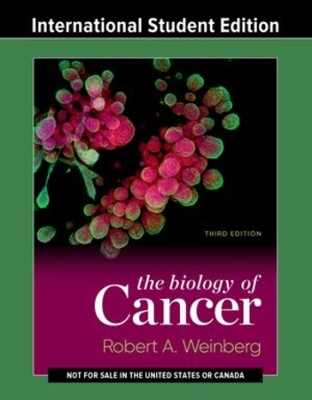
Handbook of Stem Cell Therapy
Springer Verlag, Singapore
978-981-19-2656-3 (ISBN)
- Titel wird leider nicht erscheinen
- Artikel merken
Dr. Khawaja Husnain Haider is currently a Professor of Cellular and Molecular Pharmacology (Stem cells and Gene Therapy) and Chairman of the Basic Sciences Department (Medical Program) at Sulaiman AlRajhi University. He has also served as Principle Investigator (PI) and Co-PI on various NIH funded stem cells research projects. He has been on the editorial boards of various research journals and an invited reviewer for several respected international journals. His research focuses on the use of DNA, miRNAs, and stem cells as "drugs," a topic that has gained popularity in regenerative medicine. He has published nearly 300 book chapters, abstracts, and research papers published in various books and leading research journals including, Circulation, Circulation Research, Cardiovascular Research, JCMM, the Journal of Biological Chemistry, Cell Cycle, Basic Research in Cardiology, and Antioxidant Redox Signaling. He has also given numerous presentations and edited 7 books covering various facets of stem cell and their applications from drug to drug development.
Section I: Cell-based Therapy Approach
Section-Ia. Mesenchymal stem cell-based therapy
Chapter-1: Human Mesenchymal Stem Cells - the art to use them in the treatment of previously untreatable.
Chapter-2-: Therapeutic Strategies of Mesenchymal Stem Cells in Regenerative Medicine.
Chapter-3: Considerations for clinical use of Mesenchymal Stromal Cells.
Chapter-4: Stem Cells in Wound Healing and Scarring.
Chapter-5: Mesenchymal Stromal Cells for wound healing therapy: from expectations to reality.
Chapter-6: Bone Marrow Adiposity: Role of Mesenchymal Stem Cells differentiation and Flavonoids.
Chapter-7: Mesenchymal Stromal Cells for covid-19 critical care patients: a present hope.
Chapter-8: Mesenchymal Stem Cell-based cell therapy for inflammatory bowel disease.
Chapter-9: Considerations for clinical use of Mesenchymal Stromal Cells.
Chapter-10: Current state of stem cell therapy for heart diseases.
Chapter-11: Mesenchymal Stem Cells for cardiac repair: the time of cell delivery and the clinical outcome.
Chapter-12: Mesenchymal stem cell-based therapy for Ocular diseases.
Chapter-13: Stem cell for cartilage repair.
Chapter-14: Cell therapy strategies for the treatment of spinal cord injury.
Chapter-15: Therapeutic effects of Mesenchymal Stem Cells on cognitive deficits.
Chapter-16: Mesenchymal stem cell-probiotic communication: Beneficial bacteria in preconditioning.
Chapter-17: Unraveling the Mystery of Regenerative Medicine in the Treatment of Heart Failure.
Chapter-18: Therapeutic uses of stem cells for heart failure: Hype or Hope.
Chapter-19: Mesenchymal stem cells: from identification and characterization to clinical applications.
Chapter-20: Effects of 3D cell culture on the cell fate of mesenchymal stromal cells.
Section Ib: Non-Mesenchymal stem cell-based therapy
Chapter-21: The function of stem cells in ocular homeostasis
Chapter-22: The potential of stem cells in ocular treatments.
Chapter-23: Myoblast therapies constitute a safe and efficacious platform technology of regenerative medicine for the human health industry.
Chapter-24: Adipose tissue-derived regenerative cells-based therapies: Current optimization strategies for effective treatment in Aesthetic Surgery.
Chapter-25: Molecular signature of stem cells differentiating towards cardiomyocyte lineage.
Chapter-26: Stem cell applications in cardiac tissue regeneration.
Chapter-27: Vascular functional recovery and reparation by human endothelial progenitor cells.
Chapter-28: Neural stem cells: from bench to bedside.
Chapter-29: Microglia and astrocytes as potential targets for therapies utilizing stem cells.
Chapter-30: Utility of human iPSC for modelling cardiovascular disease with an emphasis on arrhythmia.
Chapter-31: Novel approaches of stem cell-based therapy of Diabetes Mellitus.
Chapter-32: Human stem cell differentiation in vivo following in utero transplantation in large animals.
Section II: Cell-free Therapy Approach
Chapter-33: Application of stem cell-derived extracellular vesicles in patients with ischemic stroke.
Chapter-34: Mesenchymal Stem Cells Secretome: a potential biopharmaceutical component to regenerative medicine
Chapter-35: Insights into the effects of Mesenchymal Stem Cell-derived secretome in managing various diseases.
Chapter-36: Current trends and future outlooks of dental stem cell-derived secretome/ conditioned medium in regenerative medicine.
Chapter-37: Induced pluripotent stem cell-derived cell replacement and paracrine-mediated therapy for retinal disorders.
Chapter-38: Skeletal Muscle-Extricated Extracellular Vesicles: Facilitators of Repair and Regeneration.
Chapter-39: Regenerative medicine applied to the treatment of musculoskeletal pathologies.
Chapter-40: Extracellular vesicles derived from mesenchymal stem cells: biological activity and approaches of large-scale production.
Section III: Miscellaneous
Chapter-41: Advanced stem cell isolation & cultivation - improvement from isolation to expansion for manufacturing of cell-based products.
Chapter-42: Priming the stem cells with drug molecules to develop super stem cells.
Chapter- 43: Advances, Opportunities and Challenges in Stem Cell-based Therapy.
Chapter-44: Making Super cells through Pharmacological preconditioning of stem cells.
Chapter-45: Toll-like receptor 3: a multifunctional regulator of Mesenchymal Stem Cells
Chapter-46: Factors affecting the genomic instability in stem cells: the basic issues.
Chapter-47: Bioengineering technique progress of direct cardiac reprogramming.
Chapter-48: Metabolic Response of the Bone Marrow Stem Cells and the Microenvironment to Stress: Marrow Adipose Tissue and Leukemia.
Chapter-49: Endothelial progenitor cells from bench to antitumor therapy and diagnostic imaging.
Chapter-50: Non-cryopreserved peripheral stem cell (PSCS) autograft for Multiple Myeloma and Lymphoma in developing countries. Mohamed Amine BEKADJA.
Chapter-51: Targeting Cancer Stem Cells: New Perspectives for a Cure to Cancer
Chapter-52: Tumor-infiltrating macrophages and cancer stem cells: new roles for future treatments
Chapter-53: Future perspective of exosomal payload of miRNA in lung cancer.
Chapter-54: The stem cell continuum model and implications in cancer.
| Erscheint lt. Verlag | 7.12.2022 |
|---|---|
| Zusatzinfo | 10 Tables, color; 10 Illustrations, color; 10 Illustrations, black and white; X, 1352 p. 20 illus., 10 illus. in color. Print + eReference. |
| Verlagsort | Singapore |
| Sprache | englisch |
| Maße | 155 x 235 mm |
| Themenwelt | Medizin / Pharmazie ► Allgemeines / Lexika |
| Naturwissenschaften ► Biologie ► Genetik / Molekularbiologie | |
| Naturwissenschaften ► Biologie ► Zellbiologie | |
| ISBN-10 | 981-19-2656-5 / 9811926565 |
| ISBN-13 | 978-981-19-2656-3 / 9789811926563 |
| Zustand | Neuware |
| Haben Sie eine Frage zum Produkt? |
aus dem Bereich


